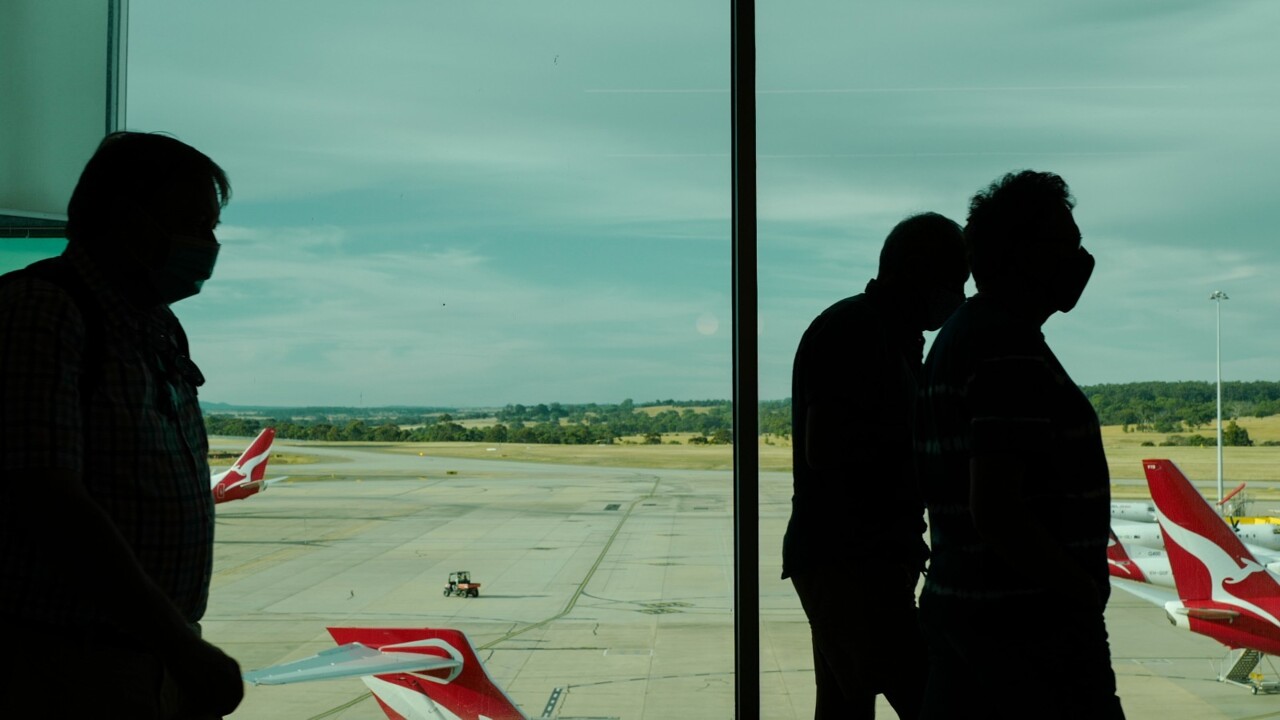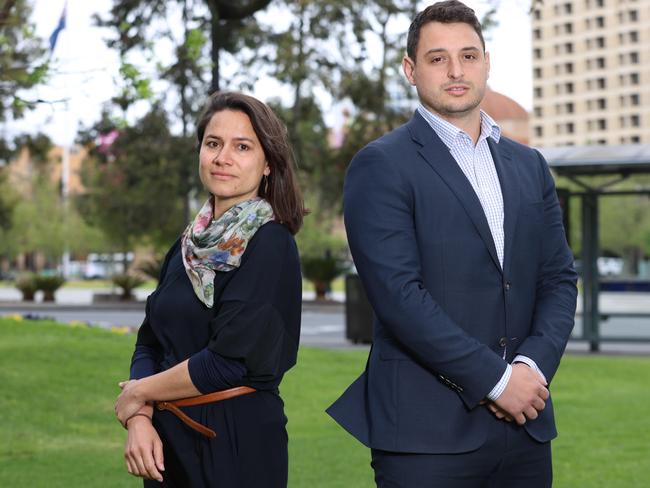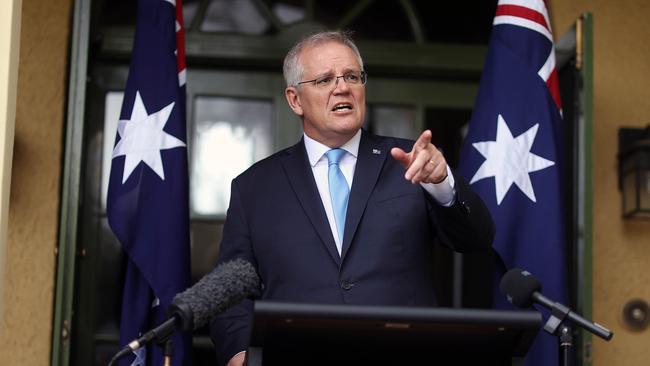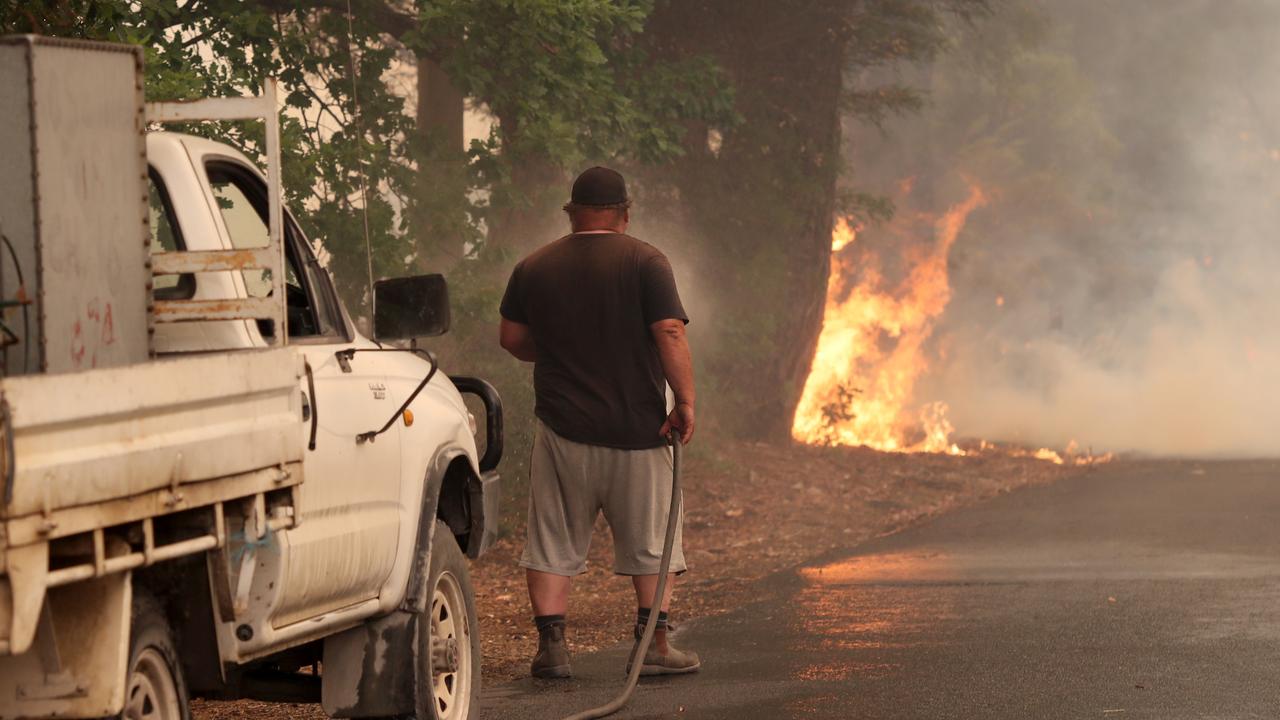World-first Adelaide study proves how shutting borders to contain Covid is destroying mental health
Mental distress among people torn apart from their families by Covid-19 bans is putting them at severe risk, according to a world-first study in Adelaide.

Coronavirus
Don't miss out on the headlines from Coronavirus. Followed categories will be added to My News.
Australia’s international border closures has sparked “extreme levels” of distress among people torn apart by Covid-19 bans, according to a world-first study conducted in Adelaide.
In a landmark project, the South Australian Health and Medical Research Institute and Flinders University surveyed almost 4000 people on mental health linked to travel restrictions.
The study, involving Australians linked to more than 100 countries, found three in four participants recorded “extreme levels” of distress put people at risk of mental illness disorders.
The most common source of grief was among those desperate to be reconnected with partners or family – especially elderly parents or those with babies – as well as international students trying to kickstart study.
A fifth of people believed they needed help for a mental health problem, according to authors, SAHMRI researcher Matthew Iasiello and Dr Kathina Ali, from Flinders’ College of Education, psychology and social work.

The researchers found a “vast majority of respondents” – 84 per cent – reported “high or very high levels of psychological distress” and three quarters had “poor mental wellbeing”.
“While psychological distress was extremely high across all groups, partners who were separated and international students experienced the highest distress,” they concluded.
“This large sample of individuals impacted by the border policy has substantially higher rates of psychological distress than the General Australian community.”
The federal government closed the borders in March 2020, the result of which has left thousands of Australians stranded overseas.
Prime Minister Scott Morrison on Friday announced international travel will resume next month if states hit key vaccination targets.
Almost all of those surveyed – almost two thirds of whom are Australian-based – reported being “negatively” affected by current border restrictions.
“Feeling unwanted and rejected by your own country is painful beyond measure,” one participant said.
Another said: “I consider myself a highly resilient person normally but this ongoing situation with no targeted end date in sight has finally broken me.”
Participants were split among those wanting to return home, wishing to leave Australia to visit relatives or needing someone to enter, or leave, Australia.

The most common reason was to be with partners, family and friends. A small number cited employment, economic or study reasons while just one per cent said they missed holidaying.
Dr Ali, a post doctoral research fellow, said participants were highly educated and employed people.
“We were surprised by the extremely high levels of distress and there were many powerful responses,” she said. “It was heartbreaking to read through these to be quite honest.”
Mr Iasiello said the study – titled mental health and wellbeing among individuals impacted by the current Covid-19 international border closure: a hidden and vulnerable group – focused solely on mental health effects and not on the merits of border closures.
The findings, which include follow up surveys, are currently being peer reviewed in an international scientific journal specialising in public health.




